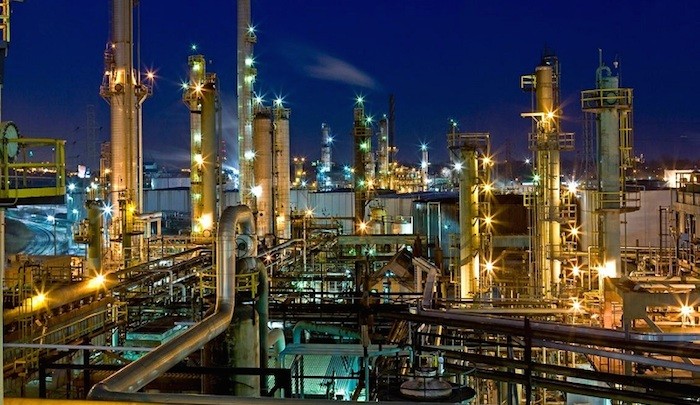The pricing of petrol and the volatility within the overseas trade market are pulling the plug on entrepreneurs’ efforts to hitch the Nigerian Nationwide Petroleum Firm Restricted (NNPC) within the importation of the product into the nation.
The controversy over whether or not petrol subsidy is basically gone has reemerged as entrepreneurs proceed to remain on the sidelines after some introduced in cargoes following the implementation of reforms by the present administration.
Following the elimination of subsidy and liberalisation of the FX market final yr, over 50 oil entrepreneurs had been licenced to produce petroleum merchandise in accordance with Petroleum Trade Act (PIA).
Oil entrepreneurs instructed BusinessDay on Wednesday that they’ve stopped importing the product, citing the shortcoming to promote at market-driven costs because the NNPC has left the pump worth unchanged for months.
“For greater than 4 months now, no different importer has introduced within the product besides the NNPC Ltd,” one of many entrepreneurs that acquired a licence to import petrol mentioned.
The marketer mentioned the pump worth of petrol had been left unchanged by the nationwide oil firm as a result of the federal government was subsidising the product. “It’s tough to interrupt even; no marketer has introduced within the product as a result of reintroduction of subsidy.”
One other oil marketer narrated how FX volatility has left entrepreneurs susceptible to monetary losses.
“Ardova tried as soon as after the subsidy was eliminated however didn’t herald multiple vessel,” he mentioned.
Tunji Oyebanji, chief govt officer of 11 Plc (previously Mobil Oil Nigeria Plc), mentioned having the NNPC as the one firm supplying petrol into the nation was selling unhealthy competitors, which was prohibited by the Petroleum Trade Act.
“Costs of petrol are nonetheless not reflective of true market dynamics. There ought to be wholesome competitors all through the worth chain, and all these have been unattainable as a result of NNPCL monopoly,” he mentioned.
Oyebanji mentioned unbiased entrepreneurs have been unable to import petrol largely as a result of lack of ability to entry overseas trade at aggressive charges.
“Not all oil entrepreneurs have entry to foreign exchange at aggressive costs. NNPC’s insistence on promoting on the present worth is a disincentive to entrepreneurs to usher in PMS,” Oyebanji mentioned.
Mele Kyari, group CEO of NNPC Ltd, mentioned on December 14 that oil entrepreneurs withdrew from the importation of petrol as a result of they may not handle the challenges of worth fluctuations within the downstream sector.
“The oil corporations withdrew as a result of they will’t handle the oscillation and accountability that the Petroleum Trade Act imposed on us. We’ve the market and I can guarantee you that we’re managing this. Some entrepreneurs purchase from us and promote. However there is a component that we are able to’t management. As an example, truck house owners can modify their costs, now we have no management over that,” Kyari instructed lawmakers throughout a session with the Senate Committee on Finance.
In line with Oyebanji, the NNPC just isn’t enjoying on the similar stage as oil entrepreneurs who’re largely accountable to exterior shareholders or traders.
“A number of the oil entrepreneurs have been in enterprise for a few years with expertise throughout completely different nations; This can be very tough to show these individuals don’t know what they’re doing,” he mentioned.
Since ending the subsidy final yr, BusinessDay’s findings confirmed 56 non-public companies have been licensed to import petrol, and 7 of them had been importing as of September 2023.
On July 19, Emadeb Power Providers Restricted introduced within the first batch of petrol of about 27 million litres into the nation.
The corporate mentioned the product got here into the nation in a cargo valued at over $17 million with large overseas trade parts.
“The worth of this cargo right here, you can’t discover it out there similar to that. It’s over $17 million, and you’ll’t, in any means, with what the FX is as we speak. Right this moment, now we have imported 27 million litres of PMS, however native refining is the way in which ahead for us on this nation,” Adebowale Olujimi, CEO of Emadeb Power, mentioned on Come up TV in July.
However following the cruel financial realities within the nation and threats by labour unions to close down the economic system ought to petrol worth improve once more, the federal government, via the NNPC, insisted the worth of the product would keep at N568 or N617, relying on the situation.
“The final non-public supplier, Petrocam, that imported petrol into Nigeria in September, can’t promote it as a result of return of subsidy on the product and the insistence of the NNPC Ltd to not elevate the pump worth. The corporate was pressured to promote the product to NNPC Ltd,” a supply mentioned.
Subsidy fully eliminated, NNPC insists
On Wednesday, the NNPC debunked stories that it clashed with oil entrepreneurs or another occasion over fee of subsidy on petrol.
Olufemi Soneye, chief company communications officer of the nationwide oil firm, insisted in a press release that subsidy fee on petrol has been fully eliminated by the federal authorities and never diminished as being insinuated.
Final month, the World Financial institution weighed in on the continued debate about gasoline subsidies in Nigeria, stating that with out authorities intervention, the petrol worth ought to be round N750 per litre, not the present worth of N650.
“If we estimate what’s the price reflective of retail PMS worth of the would-be and assume that importation is finished on the official FX price, it does appear that petrol costs will not be absolutely adjusting to market circumstances in order that hints on the partial return of the subsidy,” Alex Sienaert, the lead economist for the World Financial institution in Nigeria, mentioned throughout his presentation in Abuja.


